Quick Answer
Yes—you can often get a mortgage in 2026 even with a deficiency judgment, but you usually must either (1) pay/settle it, or (2) set up a written payment plan and show at least 3 on-time, monthly payments (no lump-sum “catch-up” payments). Whether a lender requires payoff, allows a payment plan, or needs a lien/title issue resolved depends on loan type (FHA/VA/Conventional) and your state’s deficiency-judgment rules.
What you’ll learn in this guide
- What a deficiency judgment is (in plain English) and how it happens after foreclosure
- Why some borrowers never get pursued—and why others do
- How deficiency judgments can affect credit, underwriting, and title/public-record checks
- The two main paths to approval: payoff/settlement vs. documented payment plan
- FHA vs VA vs Conventional: what underwriters typically want to see
- What documents will you need (agreement, payment proof, court docs) to avoid delays
- When it’s smart to involve a real estate attorney for state-law or lien questions
If you’re in a recourse vs restricted state…
Deficiency rules are state-specific. In a recourse situation, a lender may be able to pursue you for the unpaid balance after foreclosure through a deficiency judgment. In states with anti-deficiency protections (sometimes called “restricted” situations), deficiency judgments may be limited or prohibited depending on the scenario (for example: purchase vs. refinance, judicial vs. non-judicial foreclosure, and other exceptions). Because it’s hard to simplify without getting misleading, it’s best to check your state’s deficiency rules and, if needed, confirm your options with a local attorney.
What Is a Deficiency Judgment in Real Estate?
A deficiency judgment happens when your lender forecloses on your home, sells it, and doesn’t get enough money to cover what you still owed on your mortgage. A deficiency is the difference between what you owed and what the lender got.
If the lender wants, they can take you to court and get a judgment saying you still owe that leftover amount. That’s a deficiency judgment.
Example:
If you owe $300,000 on your mortgage and your home sells in foreclosure for $200,000, the lender faces a $100,000 deficiency. They may pursue that outstanding amount through a court-issued deficiency judgment in this case.
Facing a Deficiency Judgment? You Can Still Qualify for a Home Loan
Learn how deficiency judgments impact your loan options and how to navigate the process to qualify for a mortgage
How Common Are Deficiency Judgments in 2026?
Most lenders don’t bother pursuing deficiency judgments unless they think you have enough income or assets to pay. Lawsuits are expensive, and if you’re already struggling, lenders may decide it’s not worth it.
However, depending on your state and financial situation, you could still be at risk. Some states even ban deficiency judgments after foreclosure. These are known as non-recourse states, like California.
Always check your state laws or speak with a mortgage expert.
Will a Deficiency Judgment Stop You From Getting a Mortgage?
Not necessarily. At Gustan Cho Associates, we help borrowers get approved with deficiency judgments, collections, charge-offs, and low credit scores.
You may still qualify for an FHA, VA, or Conventional mortgage under the following conditions:
Option 1: Pay Off the Judgment
One option to consider is to pay off the judgment by settling the full amount before or at the time of closing. Once the payment is made, it’s important to obtain and provide proof of release from the court to confirm that the judgment has been satisfied.
Option 2: Payment Plan With the Creditor
To establish a structured repayment plan with your creditor, it is essential to create a written payment agreement outlining the terms. Once this is in place, ensure that you make at least three monthly payments on time. To further validate your commitment, keep records of these transactions, such as canceled checks or bank statements, as proof of payment.
Important: You cannot make 3 payments all at once. Lenders want to see seasoned payments over time.
How to Qualify for a Mortgage With a Deficiency Judgment
Getting approved with a deficiency judgment isn’t just possible—it happens daily at Gustan Cho Associates. Here’s how we make it work:
FHA Loans With Deficiency Judgments
When it comes to FHA loans involving deficiency judgments, there are specific requirements to keep in mind. A written payment agreement and a documented payment history covering the last three months are necessary. Additionally, proof of payment must be provided; however, it’s important to note that there is no requirement to settle old collections or charge-offs.
VA Loans With Deficiency Judgments
VA loans are similar to FHA guidelines and offer flexibility regarding credit and past financial issues. They are an excellent option for veterans who may have limited savings and provide a valuable opportunity for homeownership.
Conventional Loans With Deficiency Judgments
Conventional loans with deficiency judgments have more rigid credit rules. To show financial responsibility, borrowers need to submit a written payment plan and proof of their payments. Plus, their debt-to-income (DTI) ratio has to meet Fannie Mae and Freddie Mac’s guidelines to be eligible for these loans.
Tip: A deficiency judgment doesn’t always appear on credit reports, but underwriters will check public records. Be upfront with your lender.
What Underwriters Verify With Deficiency Judgments
A deficiency judgment doesn’t automatically kill a mortgage approval—but it does trigger extra verification in underwriting. Even if the judgment isn’t showing on your credit report, the underwriter may still discover it through public records and the title search. Here’s what they typically review and why it matters.
1) Public Records and Case Details
Underwriters may look for:
- The court case number, filing date, and current status (active, satisfied, renewed)
- The balance owed (including interest and court costs)
- Whether the creditor has the right to enforce or renew the judgment under state law
Why it matters: The underwriter needs to confirm the judgment is real, current, and properly documented—not a surprise lien waiting to derail closing.
2) Title Search and Lien Impact on the Property
Even if you qualify on paper, a judgment can create a title issue if it’s recorded as a lien in the county where you’re buying (or where you currently own property). Title and underwriting may verify:
- Whether the judgment is recorded as a lien
- Whether it must be paid off, released, subordinated, or otherwise resolved before closing
- Whether there are multiple judgments or related liens attached
Why it matters: A lender can’t close if the title company can’t ensure a clean title—or if the lender’s lien position is compromised.
3) Written Repayment Agreement (if not paying it off)
If the judgment isn’t being paid in full before closing, underwriting typically verifies:
- A signed, written payment agreement with the creditor
- Clear payment terms (monthly amount, due date, remaining balance)
- That the agreement is current and enforceable (not expired, not unsigned, not vague)
Why it matters: Verbal arrangements don’t count. Underwriters need a paper trail.
4) Seasoned Payment History (usually 3 months)
Underwriters usually require:
- At least three separate monthly payments made on time (not prepaid all at once)
- Proof of payment (canceled checks, bank statements, or creditor receipts showing it cleared)
- Consistency (no gaps, no “double payments” to simulate seasoning)
Why it matters: They’re measuring willingness and ability to pay over time, not just ability to write a one-time check.
5) Debt-to-income (DTI) Treatment
Underwriting may count one of the following in your DTI:
- The monthly payment amount from the written agreement, or
- If no agreement exists, a required imputed payment may be used (varies by loan type and underwriter)
Why it matters: Even if you don’t pay it off, the monthly obligation can affect approval—especially on Conventional loans with tighter DTI caps.
6) Reserves and “Ability to Close”
If you’re settling the judgment before or at closing, underwriters check:
- That you have enough funds for the down payment + closing costs + settlement
- Whether the settlement affects required reserves (if the loan program requires them)
- Large deposits used for payoff/settlement may require sourcing
Why it matters: Paying a judgment can quickly change your cash-to-close and reserve picture.
7) Letters of Explanation and Timeline Consistency
Expect requests for:
- A short letter of explanation (what happened, when, why it won’t repeat)
- A clear timeline that matches your credit report, foreclosure dates, and court filing dates
Why it matters: Underwriters look for consistency. Missing dates or contradictions can delay approval.
8) Loan-Program Specific Overlays (or lack of overlays)
Even when agency guidelines allow a payment plan, some lenders add stricter rules (overlays), such as:
- Requiring a payoff even when the guidelines don’t
- Requiring a longer payment history than 3 months
- Additional reserve requirements
Why it matters: Two lenders can view the same file differently. This is where “no overlays” can be the difference between approval and denial.
What Happens If I Don’t Pay the Judgment?
If you ignore the deficiency judgment, the creditor could:
- Garnish your wages (if state law allows)
- Freeze your bank account
- Place liens on other property
- Hurt your credit score even more
That’s why it’s smart to deal with it upfront—especially if you want to buy a house.
In 2026, many lenders still consider deficiency judgments serious derogatory items, but Gustan Cho Associates has no lender overlays and can help you through the process.
Deficiency Judgment? Discover Your Home Loan Options
Don’t let a deficiency judgment stop you—find out how to qualify for a mortgage with this financial challenge.
Deficiency Judgments Depend on State Law and the Type of Foreclosure
Whether a lender can go after a deficiency judgment (which is basically the leftover amount you still owe after a foreclosure sale) really depends on two main things:
- the rules in your state and
- the type of foreclosure that was done—like whether it was judicial or nonjudicial.
In many places, a deficiency judgment may be allowed in some scenarios but restricted in others, so it’s not safe (or accurate) to rely on a short list of “recourse vs non-recourse states.”
Why Foreclosure Type Matters
- Nonjudicial foreclosure (power of sale): Some states limit or prohibit deficiency judgments after this type of foreclosure.
- Judicial foreclosure (court process): Some states may allow deficiency judgments more often in this process—sometimes with limits on timing, amounts, or specific property types.
3 Real-World Examples (to show how nuanced this gets)
- California: Deficiency judgments generally aren’t allowed after nonjudicial foreclosures, but may be possible in more limited situations involving judicial foreclosure and other factors.
- Arizona: Deficiency judgments may be restricted after certain nonjudicial foreclosures, depending on property characteristics and other requirements.
- Alaska: Deficiency judgments may be restricted after a nonjudicial foreclosure, based on the state’s approach to foreclosure method and deficiency recovery.
(Not legal advice—state rules can change, and exceptions are common. If you’re unsure, a local real estate attorney can confirm how your situation is treated.)
Check your state here (recommended)
- Nolo/AllLaw Chart of State Deficiency Judgment Laws (easy scan by state + foreclosure type)
- Nolo 50-State Foreclosure Law Chart (includes deficiency-judgment column for the most common process used in each state)
If you want, I can also rewrite your next section (“How long it stays on your record”) so it cleanly separates credit-reporting timelines from the length of time a judgment can be enforced/renewed (two things that are often mixed up).
How Long Does a Deficiency Judgment Stay on Your Record?
A deficiency judgment can remain on your credit report or public record for up to 7 years. In some states, it might stay even longer, like 10 to 20 years, if you let it be renewed.
This is why it’s critical to address it if you plan to apply for a mortgage.
Can I Remove a Deficiency Judgment From My Record?
Possibly. Here are a few options:
- Negotiate a payoff for less than the full amount
- Ask for a “satisfaction of judgment” once paid
- Dispute errors if it’s incorrectly reported
- File for bankruptcy, which could discharge the judgment (consult an attorney first)
At Gustan Cho Associates, we often help borrowers even while the judgment is still unpaid, as long as they meet seasoning and documentation rules.
Why Work With Gustan Cho Associates?
Many lenders have strict rules called overlays—extra guidelines that go beyond what FHA, VA, or Fannie Mae requires. We don’t.
We specialize in helping people who’ve:
- Been turned down by other lenders
- Had a foreclosure, short sale, or deficiency judgment
- Are working on rebuilding their credit
You deserve a second chance. Let’s work together.
What Documents Will I Need to Get Approved?
To qualify for a mortgage with a deficiency judgment, you’ll need:
- Copy of the judgment from the court
- Written payment agreement with the creditor
- Three months of on-time payment proof (checks or bank statements)
- Pay stubs, W-2s, or tax returns for income
- Bank statements for assets/reserves
We make the process simple. If you have questions, we’re here to walk you through every step.
Final Thoughts: Buying a Home With a Deficiency Judgment is Possible
Don’t let an old judgment keep you from buying a home. Whether your mortgage is paid off, settled, or on a payment plan, you still have options.
At Gustan Cho Associates, we know the guidelines and how to circumvent traditional roadblocks. We work with lenders who consider the full picture, not just a credit score.
Ready to Get Pre-Approved?
Borrowers who need a five-star national mortgage company licensed in 48 states with no overlays and who are experts on deficiency judgments, please contact us at 800-900-8569, text us for a faster response, or email us at alex@gustancho.com. The team at Gustan Cho Associates is available 7 days a week, on evenings, weekends, and holidays. Let’s turn your judgment into a new beginning.
Qualify for a Home Loan Even with a Deficiency Judgment
Explore the options available for purchasing a home with a deficiency judgment on your record.
Frequently Asked Questions About Deficiency Judgments:
What is a Deficiency Judgment in Real Estate?
A deficiency judgment is a court order that may require you to pay the difference between what you owed on the mortgage and what the home sold for in foreclosure, sometimes including certain foreclosure-related costs.
How Does a Deficiency Judgment Work After Foreclosure?
In general: you default → the home is sold → if the sale doesn’t cover the debt, the lender may pursue a court judgment for the remaining balance (and sometimes costs), depending on state law.
Can You Get a Mortgage with a Deficiency Judgment?
Often yes, depending on the loan program and whether the judgment is paid/settled or you have a documented payment plan that meets underwriting requirements (and any title/lien issues are addressed).
Do You have to Pay Off a Deficiency Judgment Before Closing?
Not always. Many lenders will allow an open judgment with a written payment agreement and documented on-time payments (commonly at least 3 monthly payments, made over time—not prepaid). Some situations still require payoff if there’s a title/lien problem.
Can You Set Up a Payment Plan for a Judgment and Still Qualify for FHA?
Yes—FHA guidance commonly requires the lender to obtain the agreement and evidence the payments were made on time, and it specifically notes the three payments must be monthly (not lump-summed).
How do Lenders Collect Deficiency Judgments?
If a deficiency judgment is entered, collection methods can include wage garnishment (where allowed), bank levies, and property liens, depending on state law and the creditor’s approach.
How Long Does a Deficiency Judgment Last?
It depends on state law. Some states limit how long a creditor can collect, and many allow renewal under certain conditions.
Which States Allow Deficiency Judgments?
Rules vary widely. Some states limit deficiency judgments in certain scenarios (such as specific property types or foreclosure methods), while a few restrict them in most cases. Always confirm using a state-by-state legal resource.
Can Deficiency Judgments be Negotiated or Settled for Less?
Sometimes yes. Some lenders/creditors may agree to a reduced payoff or to waive pursuit of a deficiency in exchange for specific terms—get any agreement in writing.
Can Bankruptcy Discharge a Deficiency Judgment?
In some cases, bankruptcy may discharge a deficiency judgment, but outcomes depend on the specifics of your case and jurisdiction—this is a “talk to an attorney” item.
This article about “Deficiency Judgments: Secrets Lenders Don’t Tell You” was updated on January 26th, 2026.
Home Loans with Deficiency Judgments—Here’s What You Need to Know
We’ll help you understand how a deficiency judgment affects your mortgage eligibility and how to improve your chances of approval.


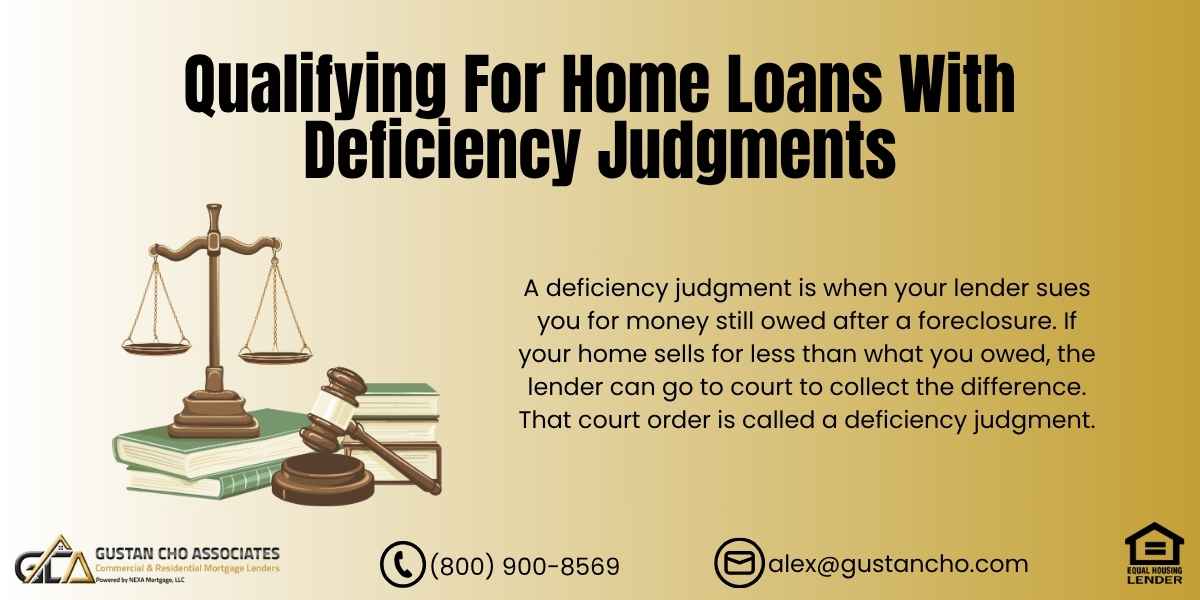

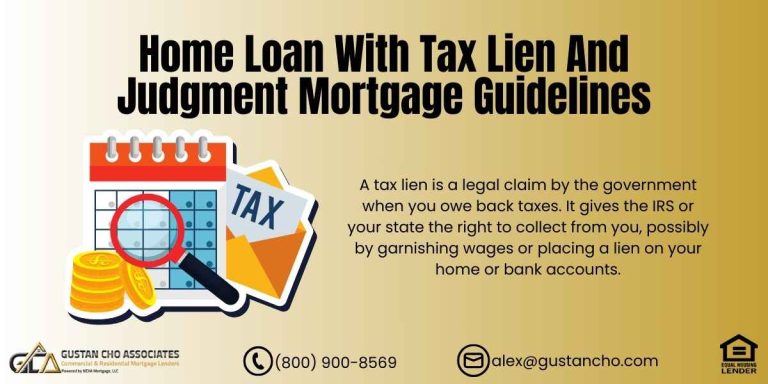
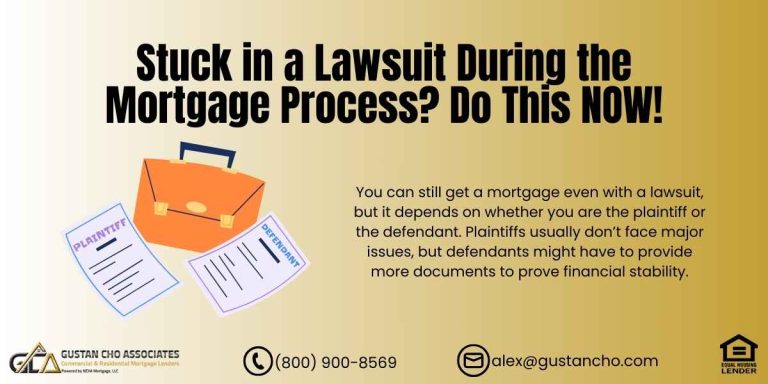

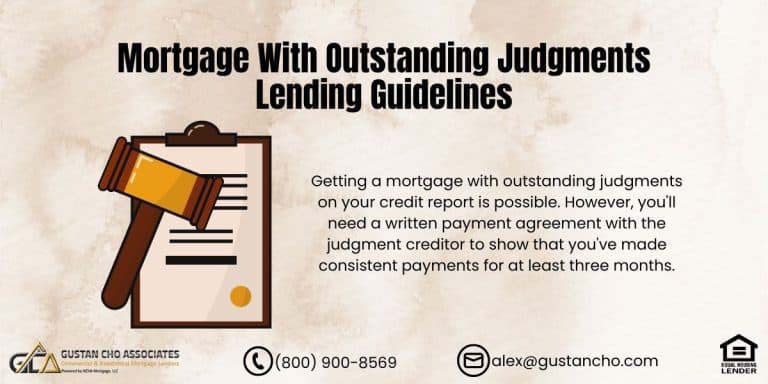
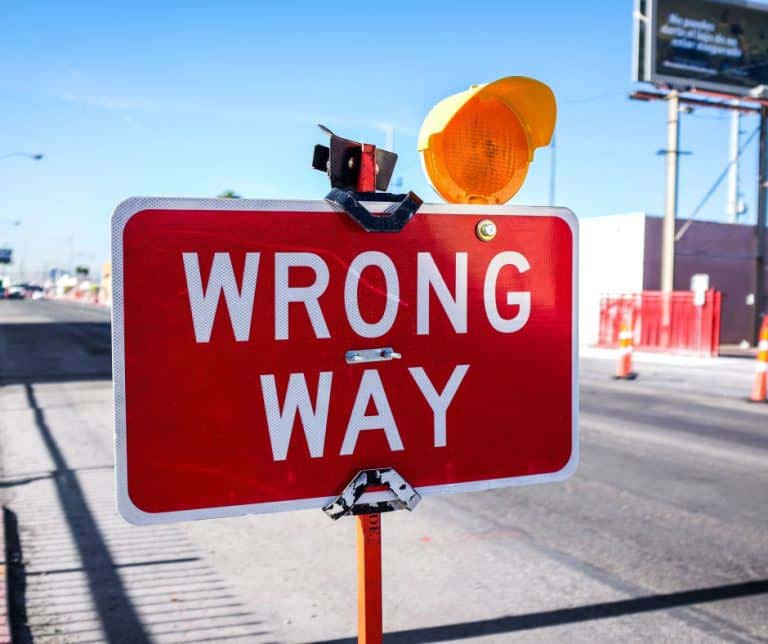
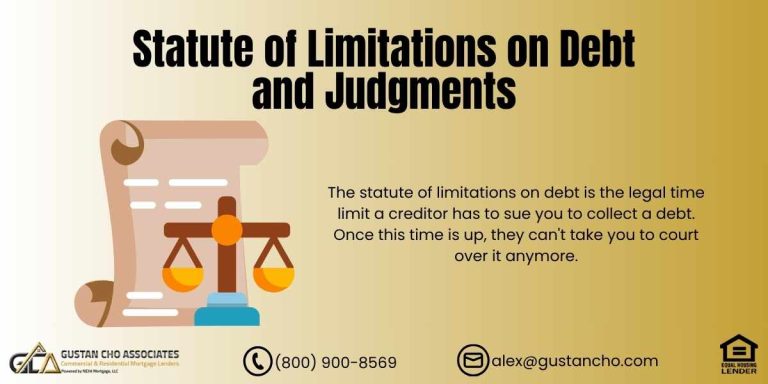
I have outstanding student loans but am a 90% disabled veteran. I would like to buy a home with a zero-down VA loan.